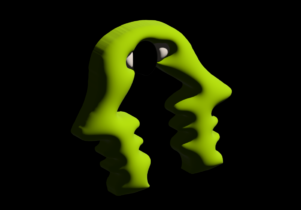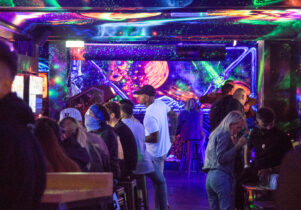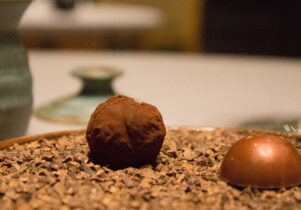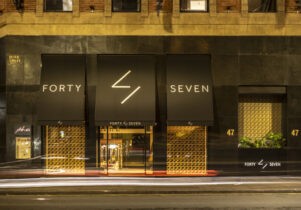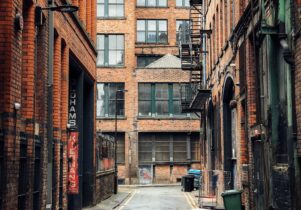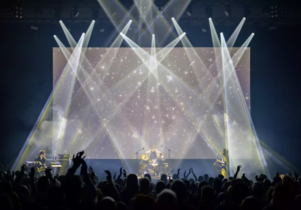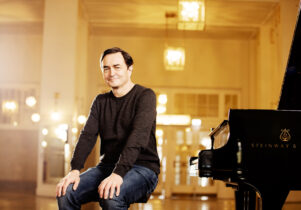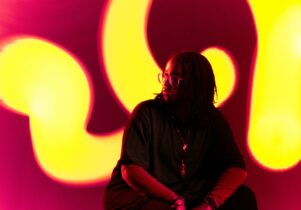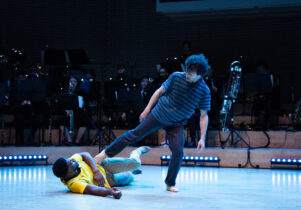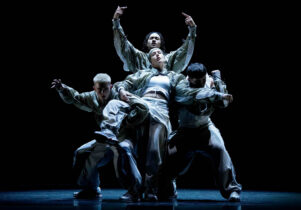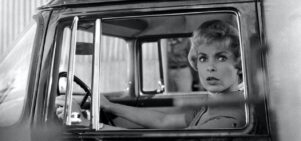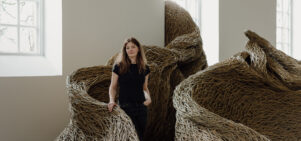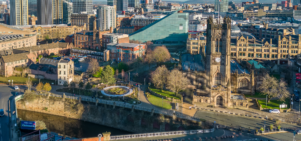GoGo Penguin at The Albert Hall
Johnny James, Managing Editor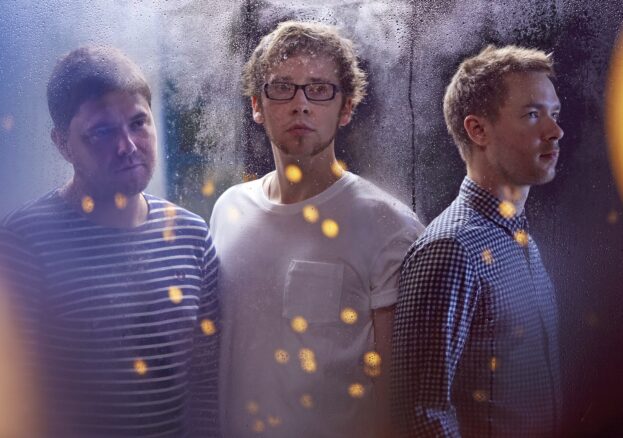
Gogo Penguin might sound like a band name invented by Jez and Super Hans from Peep Show, but this jazz-meets-electronica piano trio is a serious force in the UK jazz scene and beyond. With influences ranging from The Esbjörn Svensson Trio to Aphex Twin, Shostakovich to Massive Attack, there’s something uncanny about this band. Gogo Penguin’s music is at once familiar and unfamiliar. Within it, you’ll pick out a range of familiar genres and styles, and in this way it is recognisable. Yet the way that these are combined creates something that’s unrecognisable – something excitingly new.
A triumvirate of excellent writers and players, each member of Gogo Penguin is indispensable. The beating heart of the band is drummer Rob Turner. His skittering, hi-hat-happy grooves surge with an energy akin to the twitchier side of IDM. Weird yet often danceable, these interweave deftly with the nuanced explorations of double bassist Nick Blacka. Hugging closely to this rhythmic framework is Chris Illingworth’s minimalism-inspired piano. His dynamic melodies develop with immersive intensity, and occasionally – in the case of their latest record – soar into the stratosphere.
https://www.youtube.com/watch?v=6YE20EV1W-g
The band write in an unusual way. They often program their ideas on laptops, sequencers and drum machines, before learning how to play the music on their more traditional instruments. Through jams they endow these compositions with a softer, human side. When you listen for it, this process is very evident in their music, which they term ‘Acoustic Electronica’. The techno-infused, synth-mimicking ‘Smarra’ from Man Made Object springs to mind, as does ‘Raven’ from A Humdrum Star, which sounds like Aphex Twin circa Drukqs.
The Manchester-based band played their first gig at Sandbar (a favourite of RNCM students, which the band once were) in 2012. Quickly picked up by Mathew Halsall’s Gondwana Records, their debut album Fanfares was well received across the UK’s jazz scene. The attention that they garnered for their sophomore effort V2.0, though, was on another level. Against the odds, these relative outsiders were shortlisted for 2014’s Mercury Prize. This opened the band up to a much wider audience, and helped them to get the renowned Blue Notes Records on side for album number three: Man Made Object.
The band then toured their own score for Godfrey Reggio’s cult film Koyaanisqatsi, before heading back into the studio to record their most accomplished album to date: A Humdrum Star. Recorded at Low Four Studios in Manchester’s Old Grenada Studios, it’s their most cinematic record. Evoking Brian Eno, Illingworth’s immersive, reverb-drenched piano conjures the cosmos, whilst Turner and Blacka’s propulsive rhythms bring a razor-sharp focus to the proceedings. As well as Eno, Philip Glass feels very present on this record. The minimalist progressions in ‘Bardo’, ‘Reactor’ and ‘Strid’ are particularly reminiscent of the composer’s work. This makes sense, as Glass wrote the original Koyaanisqatsi score, which they are sure to have recently studied.
https://www.youtube.com/watch?v=IN3pq3uCmFI
On top of being viscerally powerful, this latest record also features some of the band’s most intellectually exciting music. One of the standout tracks, ‘Transient State’ flaunts Illingworth’s technical prowess. After developing a hypnotising theme which wouldn’t sound out of place on Four Tet’s latest record, the pianist becomes a human arpeggiator, laying out a breakdown section whose life clearly began inside a machine. Turner’s surging grooves and hyperactive hi-hats imbue the track, and indeed the album, with a thrilling sense of urgency.
As powerful as this music is on record, it’s even better in the flesh. One reason for this is that much of the band’s work has an improvisatory quality, and this tends to wield its most power in a live setting. Another reason is that it’s simply a joyous experience to see the connection that the trio have when playing together. Clearly communicating at a deep level, they play with thrilling synchronicity and obvious passion. In Manchester’s wonderful Albert Hall, November’s hometown show is sure to be a special one.
